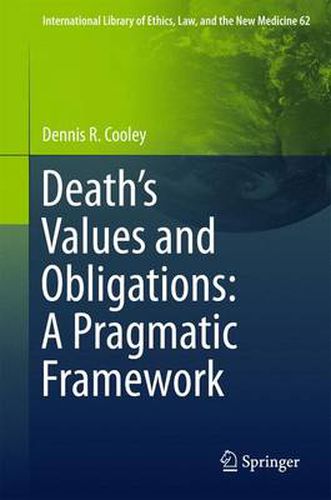Readings Newsletter
Become a Readings Member to make your shopping experience even easier.
Sign in or sign up for free!
You’re not far away from qualifying for FREE standard shipping within Australia
You’ve qualified for FREE standard shipping within Australia
The cart is loading…






This title is printed to order. This book may have been self-published. If so, we cannot guarantee the quality of the content. In the main most books will have gone through the editing process however some may not. We therefore suggest that you be aware of this before ordering this book. If in doubt check either the author or publisher’s details as we are unable to accept any returns unless they are faulty. Please contact us if you have any questions.
This book brings together the relevant interdisciplinary and method elements needed to form a conceptual framework that is both pragmatic and rigorous. By using the best and often the latest, work in thanatology, psychology, neuroscience, sociology, physics, philosophy and ethics, it develops a framework for understanding both what death is - which requires a great deal of time spent developing definitions of the various types of identity-in-the-moment and identity-over-time - and the values involved in death. This pragmatic framework answers questions about why death is a form of loss; why we experience the emotional reactions, feelings and desires that we do; which of these reactions, feelings and desires are justified and which are not; if we can survive death and how; whether our deaths can harm us; and why and how we should prepare for death. Thanks to the pragmatic framework employed, the answers to the various questions are more likely to be accurate and acceptable than those with less rigorous scholarly underpinnings or which deal with utopian worlds.
$9.00 standard shipping within Australia
FREE standard shipping within Australia for orders over $100.00
Express & International shipping calculated at checkout
This title is printed to order. This book may have been self-published. If so, we cannot guarantee the quality of the content. In the main most books will have gone through the editing process however some may not. We therefore suggest that you be aware of this before ordering this book. If in doubt check either the author or publisher’s details as we are unable to accept any returns unless they are faulty. Please contact us if you have any questions.
This book brings together the relevant interdisciplinary and method elements needed to form a conceptual framework that is both pragmatic and rigorous. By using the best and often the latest, work in thanatology, psychology, neuroscience, sociology, physics, philosophy and ethics, it develops a framework for understanding both what death is - which requires a great deal of time spent developing definitions of the various types of identity-in-the-moment and identity-over-time - and the values involved in death. This pragmatic framework answers questions about why death is a form of loss; why we experience the emotional reactions, feelings and desires that we do; which of these reactions, feelings and desires are justified and which are not; if we can survive death and how; whether our deaths can harm us; and why and how we should prepare for death. Thanks to the pragmatic framework employed, the answers to the various questions are more likely to be accurate and acceptable than those with less rigorous scholarly underpinnings or which deal with utopian worlds.